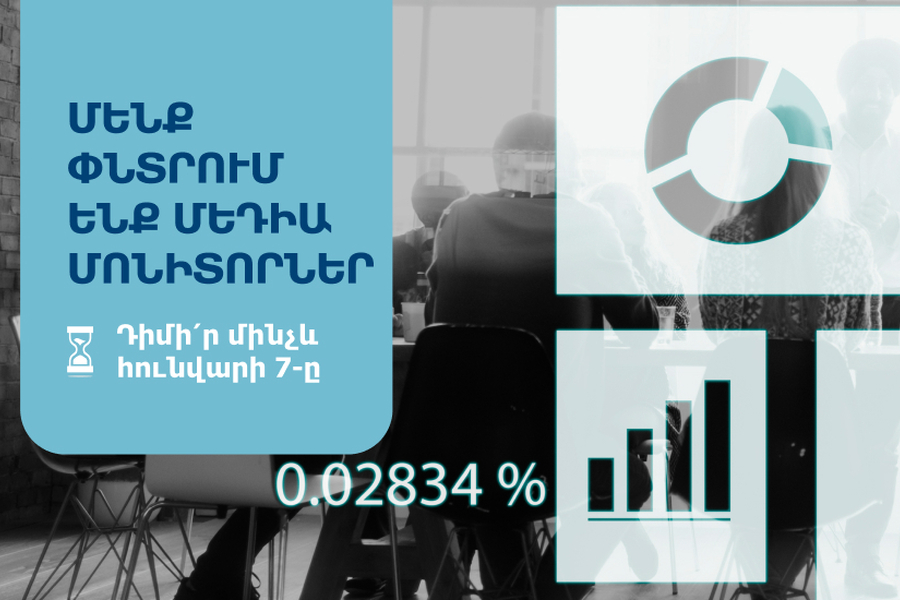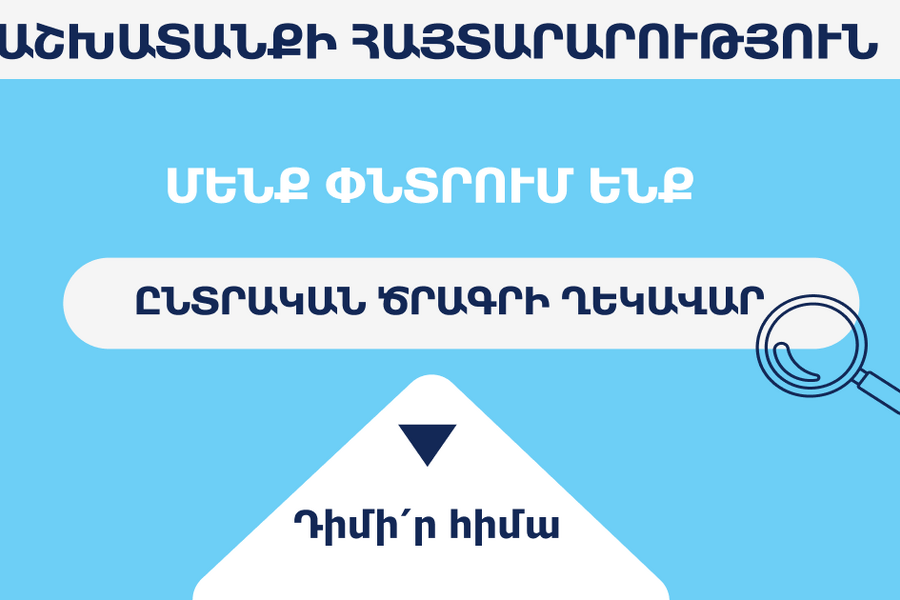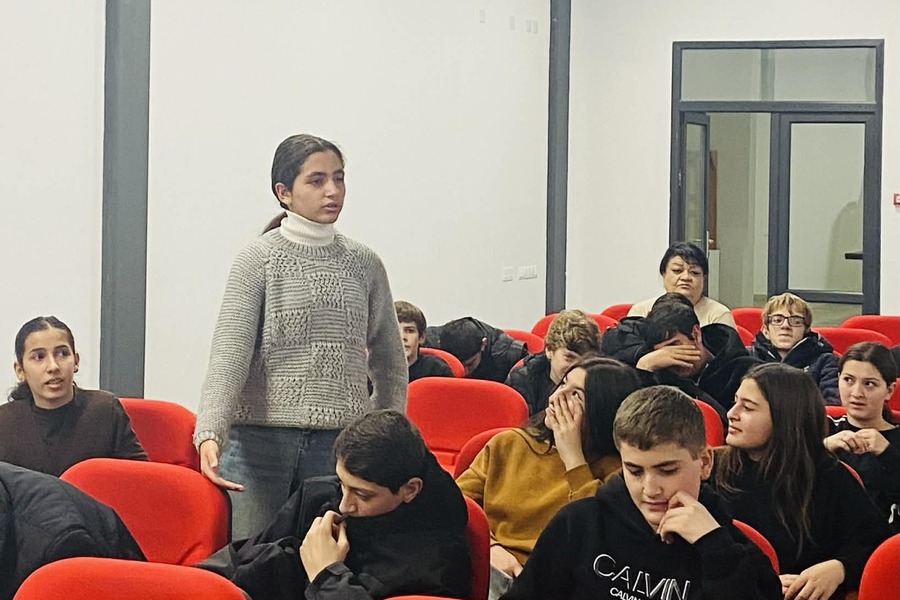December 9, 2011, Yerevan - On December 9, 2003 the United Nations declared that day as the International Day on the Fight against Corruption. Every year on that day all individuals and organizations fighting with their words and their deeds against corruption, summarize and reflect on their achievements and setbacks in that struggle, as well as those of their societies and governments. Globally, the year of 2011 was unique in the sense of public perception of corruption and its disastrous consequences, as well as in the sense of intolerance towards that evil. This uniqueness was manifested in the fact that the citizens participating in the protest movements that emerged in different parts of the world, but, unfortunately in Armenia, clearly were arguing that namely corruption in its different manifestations is among the major causes, if not the major one, of the serious problems that plagued their countries. For the ordinary citizen, who was participating in those protest actions, all were corrupt; no matter it was an Arab dictator, who made his country's budget the budget of his own family, Greek or Italian government, whose incompetent monetary policy entailed to the public debt of astronomic sizes, or an American bank, whose driven by greed transactions made bankrupt its depositors. During 2011 Armenian government continued to adopt legislative and sub-legislative acts of anti-corruption nature, in particular the new Law on Procurement or the Law on Public Service. Several other laws and decrees have been also adopted to implement the requirements of the national Anti-corruption Strategy and Its 2009-2012 Action Plan, as well as to meet its international anti-corruption obligations. Revelations of corruption facts also took place. For example, the Chamber of Control of the Republic of Armenia revealed facts of corruption in different areas. In 2011 the law-enforcement bodies continued to regularly expose corruption crimes and arrest public officials, in some cases, even high-ranking ones. The leaders of several opposition parties continued to point to the huge scales of corruption in the country. However, despite of that, the perceptions of local and international experts, as well as those of ordinary citizens, remained unchanged. And according to those perceptions, corruption in Armenia continues to remain widespread and has systemic character. The results of the studies carried out by reputable international organizations, in particular, the values of the Transparency International's (TI) 2011 Corruption Perception Index (CPI) and CPI ranking table, published on December 1, 2011, also indicate this fact. From year to year Armenia sinks down in that ranking table (this year it went down as well by 6 places), letting it to be bypassed by such countries, which only several years ago were at much worse positions, than Armenia. The results of a corruption perception survey conducted by the Armenian Office of the Caucasus Research Resources Centers (CRRC-Armenia) in 2010 and published this year are also alarming. In particular, in 2010 65% of the respondents thought that corruption was the reality of our life. It should be mentioned that this number gradually increased from year to year. In 2008 the same survey conducted by the same organization indicated that only 51% of the respondents gave such answer, and in 2009 - 59%. In all its statements and public appearances throughout the last years, Transparency International Anti-corruption Center (TIAC) was mentioning about the destructive consequences of corruption for the Armenian statehood, its root causes and the preconditions for its successful struggle. And because 2011 did not witness positive change in tackling corruption, we are only left to fix the current situation of mire in this area, which will make even more unreachable our nation's dream to have prosperous, affluent and democratic country.
Transparency International Anti-corruption Center





